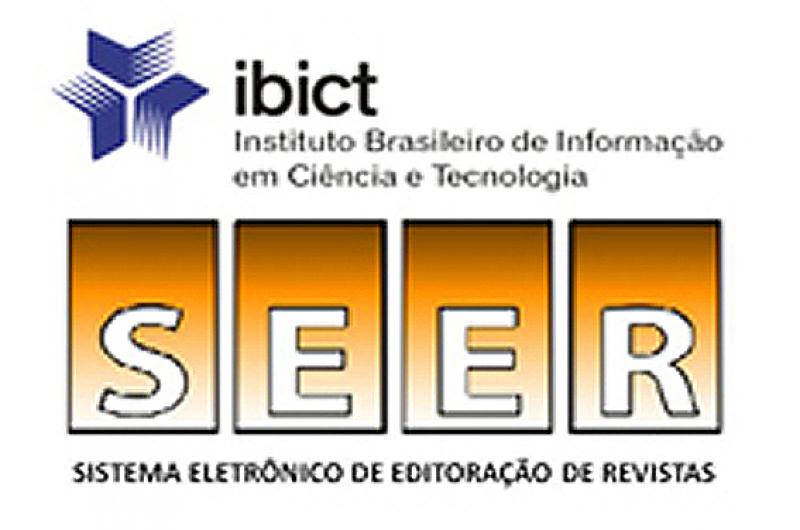PERCEPÇÕES SOBRE O USO DE APRENDIZAGEM BASEADA EM PROJETOS NA EDUCAÇÃO PROFISSIONAL E TECNOLÓGICA
PERCEPTIONS ON THE USE OF PROJECT-BASED LEARNING IN PROFESSIONAL AND TECHNOLOGICAL EDUCATIO
DOI:
https://doi.org/10.31416/rsdv.v11i2.635Palavras-chave:
Aprendizagem Baseada em Projetos, Engajamento, Ensino Médio Integrado, Técnico em InformáticaResumo
A educação no decorrer das décadas vem sofrendo modificações constantes, principalmente com a evolução das metodologias ativas, que afetando o processo de ensino-aprendizagem e os sujeitos nele envolvidos. Tais metodologias usadas como recursos educacionais potencializadores, podem reforçar o empoderamento dos estudantes e os encorajar a participação ativa no processo de ensino-aprendizagem. Essa pesquisa teve como objetivo propor e verificar a contribuição de uma Sequência Didática (SD) envolvendo a Aprendizagem Baseada em Projetos na promoção do engajamento dos alunos na disciplina de Projetos Integradores no curso Ensino Médio Integrado (EMI) de Informática visando o desenvolvimento das habilidades de trabalho em equipe, lideranças e papéis relacionados às atribuições do profissional. A pesquisa foi de caráter metodológico quanti-qualitativo, com a coleta de dados através da aplicação de questionários, análise de conteúdo e do desenvolvimento e execução da SD. Participaram da coleta estudantes no EMI de informática, servidores docentes que atuam na área, lotados no IFSertãoPE, Campus Petrolina. Entre os principais achados da pesquisa foram observados que as metodologias ativas proporcionam aos estudantes um aumento de engajamento, uma melhora no desempenho estudantil, entre outras características relacionadas ao ensino, na concepção dos docentes. Já para os discentes as metodologias ativas é uma montanha russa, contudo, os discentes se mostraram adeptos dessas metodologias, e acreditam que elas podem proporcionar um ganho expressivo no processo de ensino-aprendizagem. Os estudantes demonstraram interesse em conhecer as atribuições profissionais, bem como durante a aplicação da SD puderam refletir a respeito disto.
Referências
APPOLINÁRIO, F. Metodologia da Ciência: filosofia e prática da pesquisa. 2ª Ed. São Paulo: Cengage Learning, 2016.
BALDIN, Nelma. Munhoz, Elzira M. Bagatin. Snowball (bola de neve): Uma técnica metodológica para pesquisa em educação ambiental comunitária. X Congresso Nacional de Educação - Educere. Curitiba, 2011. Disponível em: <https://educere.bruc.com.br/CD2011/pdf/4398_2342.pdf >. Aceso em: 26 Mar. 2022.
Bender, William N. Aprendizagem Baseada em Projetos: Educação Diferenciada para o Século XXI. Porto Alegre, RS, Brasil: Penso. 2014
BRASIL. Ministério da Educação. Decreto nº 5.154, de 23 de julho de 2004. Regulamenta o paragrafo 2º do art. 36 e os arts. 39 a 42 da lei nº 9394, de 20 de dezembro de 1996, que estabelece as diretrizes e bases da educação nacional. Brasilia, DF: Presidência da República: [2004]. Disponível em: <http://www.planalto.gov.br/ccivil_03/_ato2004-2006/2004/decreto/d5154.htm> Acesso em 07 de maio 2023.
________, CAPES. Grupo de trabalho Produção Técnica. Brasília, 2019.
BUSARELLO, R. I. Gamification: princípios e estratégias. São Paulo: Pimenta Cultural, 2016.
CORTELAZZO, Angelo Luiz et al. Metodologias Ativas e Personalizadas de Aprendizagem: para Refinar Seu Cardápio Metodológico. Rio de Janeiro, RJ, Brasil: Alta Books. 2018.
CSIKSZENTMIHALUI, Mihaly. Flow: a psicologia do alto desempenho e da felicidade. Tradução Cássio Arantes Leite. – 1ª ed. – Rio de Janeiro: Objetiva, 2020.
DELORS, Jacques et al. Educação: um tesouro a descobrir. Relatório para a UNESCO da Comissão Internacional sobre Educação para o século XXI. Brasília, julho de 2010. Disponível em <https://unesdoc.unesco.org/ark:/48223/pf0000109590_por> Acesso em: 10 Abr. 2022.
FLICK, U. Introdução à metodologia de pesquisa: um guia para iniciantes. Porto Alegre: Penso, 2013.
INOCENTE, Luciane; TOMMASINI, Angélica; CASTAMAN, Ana Sara. Metodologias ativas na educação profissional e tecnológica. Redin-Revista Educacional Interdisciplinar, v. 7, n. 1, 2018. Disponível em: https://seer.faccat.br/index.php/redin/article/view/1082. Acesso em: 22 Mar 2022.
MACHADO, Y. F.; OLIVEIRA, F. K. Orientação profissional, gamificação e educação profissional e tecnológica: uma revisão sistemática de literatura. Educação Profissional e Tecnológica Em Revista, 3(1), 108-126. Disponível em: https://doi.org/10.36524/profept.v3i1.380. Acesso em 04 Abr 2022.
MATTAR, João. Metodologias ativas: para a educação presencial, blended e a distância. São Paulo: Artesanato Educacional, 2017.
MORAN, J. Metodologias ativas para uma aprendizagem mais profunda. Disponível em: http://www2.eca.usp.br/moran/wp-content/uploads/2013/12/metodologias_moran1.pdf. Acesso em: 23 fev 2022.
PRENSKY, Marc. Trad. Roberta de Moraes Jesus de Souza. Nativos digitais, Imigrantes digitais. Disponível em: http://www.colegiongeracao.com.br/novageracao/2_intencoes/nativos.pdf. Acesso em: 12 jan. 2022.
RIZZATTI et. al 2020 https://www.researchgate.net/publication/347918030_Os_produtos_e_processos_educacionais_dos_programas_de_pos-graduacao_profissionais_proposicoes_de_um_grupo_de_colaboradores
ACTIO, Curitiba, v. 5, n. 2, p. 1-17, mai./ago. 2020. Acesso em 17 Jun 2023
SILVA, Cintia Luiz da. Uma experiência de formação docente continuada com o tema aprendizagem baseada em projetos. Dissertação de Mestrado . Instituto de Ciências Exatas e Biológicas, Programa de Pós-Graduação em Ensino de Ciências - Universidade Federal de Ouro Preto, 2020. Disponível em https://www.repositorio.ufop.br/bitstream/123456789/12997/8/DISSERTA%C3%87%C3%83O_Experi%C3%AAnciaForma%C3%A7%C3%A3oDocente.pdf Acesso em 22 Jun 2023.
TORRES, C. S. Experiência formativa e inserção no mundo do trabalho de egressos no ensino médio integrado. Dissertação (Mestrado) - Programa de Pós-graduação em Educação Profissional e Tecnológica (ProfEPT), Instituto Federal de educação, ciência e tecnologia do sertão pernambucano, Campus Salgueiro, Salgueiro - PE, 117f., 2020. Disponível em < http://hdl.handle.net/123456789/583> Acesso em 22 Abr.2023
Downloads
Publicado
Como Citar
Edição
Seção
Licença
Copyright (c) 2023 Revista Semiárido De Visu

Este trabalho está licenciado sob uma licença Creative Commons Attribution 4.0 International License.















